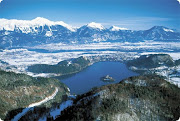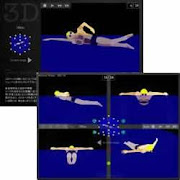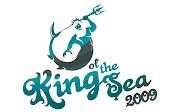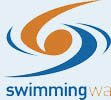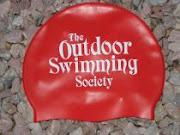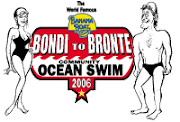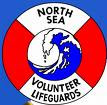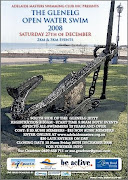These awards are not necessarily for the best athlete, but are meant to honor the woman who (1) best embodies the spirit of open water swimming, (2) possesses the sense of adventure, tenacity and perseverance that open water swimmers are known for, and (3) has most positively influenced the world of open water swimming in 2009.
We salute all the nominees who have enjoyed remarkable careers in the sport of open water swimming as athletes, coaches, promoters, race directors and/or administrators. Congratulations to everyone.
The 10 female nominees, listed in alphabetical order, are as follows:
1. Marcia Cleveland (USA), Administrator, Promoter and Coach
2. Lisa Cummins (Ireland), Patience and Persistence Pay Off
3. Natalie du Toit (South Africa), Inspirational Athlete and Spokeswoman
4. Melissa Gorman (Australia), World Champion
5. Angela Maurer (Germany), Professional Swimmer and Mother
6. Mighty Mermaids (USA), Masters Team Extraordinaire
7. Sally Minty-Gravett (Jersey), Teacher, Motivator and Coach
8. Poliana Okimoto (Brazil), World-class Professional
9. Penny Palfrey (Australia), Marathon Swimming Adventurer
10. Keri-Anne Payne (Great Britain), World-class Racer
 1. Marcia Cleveland (USA), Administrator, Promoter and Coach
1. Marcia Cleveland (USA), Administrator, Promoter and CoachMarcia of Chicago remained a whirlwind of activity and significant influence in the world of open water swimming from distances ranging from 1 mile to the English Channel. Marcia is the long-time Chair of the US Masters Swimming (USMS) Open Water & Long Distance Committee, a member of the USMS History & Archives Committee, and a member of the International Swimming Hall of Fame Nominating Committee, devoting thousands of hours to the continued development of open water swimming. She is the chief administrator for the annual USMS national championship events, including the 1-Mile Open Water Championships, 2-Mile Open Water Championships, 2-Mile Cable Championships, 5 Mile Open Water Championships, 10K Open Water Championships, 1-hour Postal Championships, 5K and 10K Postal Championships, and the 3000/6000 Yard Postal Championships. She also offers coaching and clinics for open water swimmers, many in response to the continued popularity of her authoritative marathon swimming book, Dover Solo: Swimming the English Channel. She continues to navigate innumerable key issues in the sport and for USMS competitions, gives speeches from coast to coast and swims alongside newcomers to increase their comfort levels and ensure their successes. As a mother of two, for her selfless, passionate and unrelenting leadership in the sport, Marcia is nominated as the 2009 World Open Water Swimming Woman of the Year.
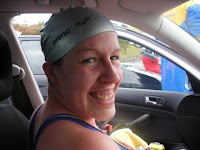 2. Lisa Cummins (Ireland), Patience and Persistence Pay Off
2. Lisa Cummins (Ireland), Patience and Persistence Pay OffLisa is not the fastest English Channel swimmer, but she surely epitomizes the essence of marathon swimming. Not only did Lisa start from scratch as an elite swimmer to become one of only twenty people in the world who have successfully completed a double-crossing of the English Channel, but she also meticulously saved, sacrificed, planned and trained mentally and physically since early 2008 to complete her epic 35 hour 36 minute swim that were followed online by the global open water swimming community. Her humor and focus in face of circumstances that were beyond reasonable were evident as she told her escort crew to not pull her from the cold Channel because she was having such a good time. After reaching land despite facing excruciating pain in her shoulders during the 2-day swim, the 26-year-old college student deservingly became the pride of Ireland. Ever optimistic and impossibly cheerful, Lisa exudes humble confidence and inspires hope among her marathon swimming colleagues and English Channel aspirants. For her incredible endurance, continued persistence and focus beyond belief, Lisa is nominated as the 2009 World Open Water Swimming Woman of the Year.
 3. Natalie du Toit (South Africa), Inspirational Athlete and Spokeswoman
3. Natalie du Toit (South Africa), Inspirational Athlete and SpokeswomanAlthough Natalie did not win any world-class marathon swims after her remarkable break-out year in 2008, she continued to work quietly and steadily towards the upper ranks of world-class marathon swimmers, overcoming physical obstacles unknown to her able-bodied competitors. The Olympic flag-bearer of South Africa and subject of a book called Tumble Turn, Natalie competed in the 5K (21st overall) and 10K (38th overall) races at the 2009 World Swimming Championships, professional World Cup marathon swims in Dubai and won local ocean swims such as the cold-water Cadiz Freedom Swim in Cape Town. Natalie’s pleasant personality and gift of time inspires many as she gives innumerable speeches and provides motivation to those with and without disabilities. Her kind smile, gentle demeanor and indomitable inner strength to compete with the world’s best swimmers are truly the elements of a Hollywood movie come true. For her continued courage and triumph over adversity in an unforgiving sport, Natalie is nominated as the 2009 World Open Water Swimming Woman of the Year.
 4. Melissa Gorman (Australia), World Champion
4. Melissa Gorman (Australia), World ChampionIt took one quick stroke – and years of intense practice – for Melissa to upset the titan of professional marathon swimming. Larisa Ilchenko had not lost a major open water swimming championship – at the Olympics or in a world champion race – in the 21st century. Larisa’s track record of success was unparalleled – until Melissa set a fast pace, withstood a frantic finishing kick and out-touched Larisa in the 5K world championships in Rome this summer. Melissa’s gold medal victory – performed on open water swimming’s most important stage in 2009 – was an upset that shook the foundation of the women’s elite marathon swimming world. A relative newcomer to the sport, 23-year-old Melissa has quickly shot up the ranks among world-class open water swimmers: from 25th at the 2008 world 10K championships in Seville to 15th at the Olympic 10K in Beijing to victory in the 2009 world championships in Italy. The bubbly, vivacious swimmer from Brisbane is also a notable cross-over athlete who represents Australia in the 400-, 800- and 1500-meter events in major international competitions and helps share the open water story among her pool friends and fans. She also won the US$10,000 winner-take-all RCP Tiburon Mile in another close race this year. It is for her focus and tenacity that led to an ushering in of a new era that we nominate Melissa as the 2009 World Open Water Swimming Women of the Year.
 5. Angela Maurer (Germany), Professional Swimmer and Mother
5. Angela Maurer (Germany), Professional Swimmer and MotherLike Olympic sprinter Dara Torres, Olympian Angela continues to be a truly world-class swimmer while not only raising a child, but also being significantly older than her fellow competitors. A year after just missing an Olympic 10K bronze medal by 0.9 seconds, Angela won the 25K world championships in a tough race in Rome after placing fifth in the world championship 10K. She now has won 8 FINA world championship medals. At the age of 35, Angela remains active on the FINA 10K Marathon Swimming World Cup and FINA Open Water Swimming Grand Prix circuits. She finished third at the 10K NYC Pro Swim (USA), third in the Copenhagen (Denmark) World Cup, third in the Lake Annecy (France) World Cup, fourth in the Varna (Bulgaria) World Cup, second in the Setubal (Portugal) World Cup, seventh in the Santos (Brazil) World Cup, third in the Chun An (China) World Cup and second in the 15K Sumidero Canyon (Mexico) Grand Prix. For her unique lifestyle balance between motherhood and remaining on top of the professional marathon swimming world, Angela is nominated for the 2009 World Open Water Swimming Woman of the Year.
 6. Mighty Mermaids (USA), Masters Team Extraordinaire
6. Mighty Mermaids (USA), Masters Team ExtraordinaireThe Mighty Mermaids are a group of six American women – all in their 50’s – who are among the most committed and fastest masters marathon swimmers on the planet. The Mighty Mermaids are extremely serious, fit and focused swimmers with a mission to demonstrate that swimming fast and having fun is easily within the realm of women north of the mid-century mark. Christie Plank Ciraulo (55 of Los Angeles), Nancy Steadman Martin (54 of New Jersey), Lisa Bennett (53 of Virginia), Jenny Cook (51 of Los Angeles), Karen Farnsworth Einsidler (53 of New Jersey) and Tracy Grilli (52 of New Hampshire) finished fifth overall in the 2009 Manhattan Island Marathon Swim in 7 hours and 33 minutes after their inaugural swim at the 2008 Trans Tahoe Relay where they were the second-fastest female team and 24th overall. But beating younger teams is not their only goal, they are great ambassadors of health and the sport of open water swimming – making friends, sharing stories and inspiring others from shore-to-shore. Individually, they continue to win open water swims while maintaining a healthy lifestyle balancing family, work and training. It is their mission and track record of success for collectively nominating the Mighty Mermaids as the 2009 World Open Water Swimming Women of the Year.
 7. Sally Minty-Gravett (Jersey), Teacher, Motivator and Coach
7. Sally Minty-Gravett (Jersey), Teacher, Motivator and CoachAs the only woman to successfully cross the English Channel in four different decades (1975, 1985, 1992 and 2005), Sally Minty-Gravett promotes and manages the Jersey Long Distance Swimming Club , a fabulously successful marathon swimming team, that is headquartered in the isle of Jersey in the middle of the English Channel. With an energy and enthusiasm second to none, Sally’s reach is both local and global: she teaches swimming to thousands of Jersey residents as well as develops and escorts swimmers with aims at marathon swims around the world. Sally has trained generations of Round Jersey swimmers (66K) and English Channel swimmers with incomparable patience, care, diligence and expertise, including four over the course of one week this August. For her ability to help swimmers achieve goals beyond their initial dreams and her immeasurable influence on individuals who chose to swim in the longest and coldest venues around the world, Sally is nominated as the 2009 World Open Water Swimming Woman of the Year.
 8. Poliana Okimoto (Brazil), Crème de la Crème Professional Swimmer
8. Poliana Okimoto (Brazil), Crème de la Crème Professional Swimmer The physical presence of the slender and polite Poliana belies her intensity and focus on becoming the best in the world. Poliana travels the world seeking to race the best in all kinds of open water races – from 1-mile invitational swims in Great Britain to professional World Cup races in South America. Poliana, who placed seventh in the Olympic 10K Marathon Swim in Beijing, is only getting faster and better with the experience. She will win the FINA 10KM Marathon Swimming World Cup title this year after winning the 10K New York City (USA) World Cup, the Copenhagen (Denmark) World Cup, the Lake Annecy (France) World Cup, the Setubal (Portugal) World Cup and the Chun An (China) World Cup and placing second in the Varna (Bulgaria) World Cup and the Santos (Brazil) World Cup. For her success on the FINA World Cup circuit and her sense of adventure, tenacity and perseverance in exploiting her full potential as a marathon swimmer, Poliana is nominated as the 2009 World Open Water Swimming Woman of the Year.
 9. Penny Palfrey (Australia), Marathon Swimmer Adventurer
9. Penny Palfrey (Australia), Marathon Swimmer AdventurerPenny travels the world with her husband, tackling tough marathon swims while maintaining a healthy business at home. In 2009, she became the second person ever to swim the treacherous, shark-infested 70K Alenuihaha Channel from the Big Island of Hawaii to Maui. The gutsy 70K (43 miles) swim took 14 hours and 51 minutes where Penny was tossed about by occasional 6-meter (20-foot) ocean swells where her crew would lose sight of her. She quickly followed up that effort with a 14.5K (8.8-mile) swim across the Maui Channel, together with her husband, from Maui to Lanai, becoming the first women to achieve this feat. She next entered the Manhattan Island Marathon Swim where she placed finished first among women for the third year in a row in 7 hours 17 minutes. Later, she was thwarted in a reverse Manhattan Island swim where she attempted the risky swim against the currents for 28.5 miles around New York. She started off the year participating in the 120K triple-crossing of Lake Taupo, the biggest lake in New Zealand, finishing in 33 hours and 33 minutes with 5 teammates. She also became the first person to swim 64K from Santa Barbara Island to the California mainland in 17 hours and 53 minutes. For her adventurous spirit, her obvious athletic abilities, her fearlessness and willingness to traverse the world in search of marathon swimming feats, Penny is nominated as the 2009 World Open Water Swimming Woman of the Year.
 10. Keri-Anne Payne (Great Britain), World-class Racer
10. Keri-Anne Payne (Great Britain), World-class Racer After winning the Olympic 10K Marathon Swim silver medal, Keri-Anne’s unique racing strategy – always out in the front while pushing the pace – has become her signature style. Her successful track record and growing expectation that she will be the Olympic 10K favorite in London in 2012 has added to the pressure on the young woman’s shoulders – but her steely resolve, training regimen and quiet intensity keep her grounded and focused. Accessible to the media with thoughtful answers explained graciously and profoundly, Keri-Anne has become the face of marathon swimming in Great Britain. She won the prestigious 10K race at the World Swimming Championships in Rome using her well-developed navigational IQ and has raced in several other invitational races and FINA 10KM Marathon Swimming World Cup events around the world. For the world champion that she is and for serving as a wonderful ambassador of the sport and her country, Keri-Anne is nominated as the 2009 World Open Water Swimming Woman of the Year.
Copyright © 2009 by World Open Water Swimming Association




























